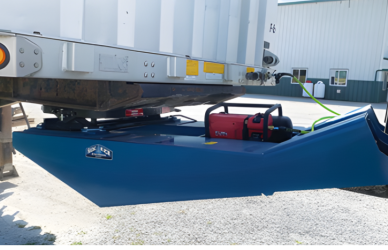For truck drivers, safety is paramount; however, an often-overlooked aspect of safety on the road is the prevalence of sleep apnea. This potentially serious sleep disorder affects one out of every three truck drivers, making it a significant concern within the industry. While there’s no specific law mandating sleep apnea testing for truckers, understanding the condition and its implications is essential for driver well-being and road safety.
What is Sleep Apnea?
Sleep apnea is a common sleep disorder characterized by pauses in breathing or shallow breaths during sleep. This condition affects millions of individuals in the United States, leading to various health problems if left untreated. If you frequently snore loudly during the night or wake up feeling tired after a full night’s rest, you might be experiencing sleep apnea.
There are three main types of sleep apnea:
- Obstructive Sleep Apnea (OSA): The most common form, OSA occurs when throat muscles relax during sleep, leading to airway blockage.
- Central Sleep Apnea: This type results from a failure of the brain to send proper signals to the muscles controlling breathing.
- Complex Sleep Apnea Syndrome: Also known as treatment-emergent central sleep apnea, this condition occurs when an individual experiences both OSA and central sleep apnea simultaneously.
Symptoms of Sleep Apnea
All three types of sleep apnea share several common symptoms, including:
- Disrupted breathing with labored respiration or temporary cessation for up to a minute
- Excessive daytime sleepiness
- Morning headaches
- Irritability
- Limited attention span and difficulty thinking clearly
These symptoms often stem from poor sleep quality and reduced oxygen levels due to interrupted breathing. In the case of OSA, additional symptoms may include:
- Loud snoring accompanied by gasping, choking, or snorting sounds that may briefly awaken the individual
- Morning sore throat or dry mouth
- Frequent nocturnal awakenings to urinate
Causes and Treatment Options for Sleep Apnea
Sleep apnea primarily occurs when the airway becomes obstructed during sleep. Several factors can increase the risk of airway blockage, including:
- Obesity
- The use of sedative medications or alcohol
- A family history of sleep apnea
- Smoking cigarettes
- Sleeping on your back
- Nasal congestion
Risk Factors
Sleep apnea risk is influenced by various factors, including age and gender. Men are more susceptible to the condition than women, and its prevalence tends to increase with age. Therefore, older male truck drivers should be particularly vigilant about monitoring their sleep patterns.
Health Consequences
Untreated sleep apnea can have severe health consequences. It is associated with conditions such as high blood pressure, heart disease, stroke, and diabetes. By addressing sleep apnea early, truck drivers can not only improve their overall well-being but also reduce the risk of developing these serious health issues.
Regulations and Policies
While there may not be a federal mandate, some states and trucking companies have specific policies regarding sleep apnea testing. Drivers should familiarize themselves with these regulations and adhere to any requirements set forth by their employers or local jurisdictions.
If you suspect you have sleep apnea, it’s crucial to consult a healthcare professional for a proper diagnosis and treatment plan. Neglecting treatment can jeopardize your overall health as well as your ability to operate a Commercial Motor Vehicle (CMV).
Treatment typically involves using a Continuous Positive Airway Pressure (CPAP) machine, which delivers oxygen to the individual during sleep, ensuring uninterrupted breathing. In addition to CPAP therapy, your doctor may recommend lifestyle changes such as exercise, weight loss, or the use of oral appliances designed to keep the airways open.
Trucking is a demanding profession which can take a toll on driver health, particularly when it comes to sleep apnea. Recognizing the symptoms and addressing this condition is essential for the well-being of truck drivers and the safety of everyone on the road. By seeking treatment and taking proactive steps to manage sleep apnea, drivers can ensure they remain alert, focused, and safe while delivering their cargo. In the trucking industry, prioritizing health is not just an option – it’s a necessity for all road users’ safety.











